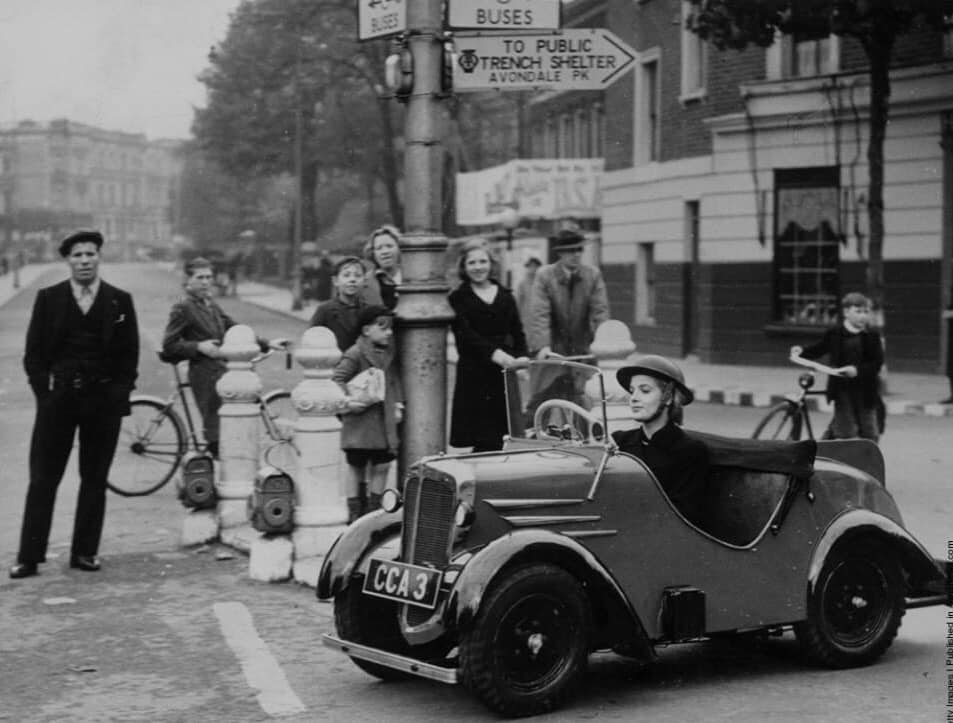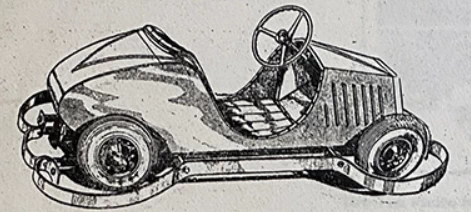The Rytecraft Scootacar is an electric fairground dodgem car converted for road use by Jack Shillan, and produced by the British Motorboat Manufacturing Company (BMMC) of London from 1937 until 1940.[1] The car was priced at £70,[2] equivalent to about £4,800 as at 2021.[a]Calculated using the retail price index.[3] Truck and van variants were also available.[2]
Early versions were powered by a 98 cc (6 in3) Villiers motorcycle engine, driving a solid back axle through an automatic clutch. The single pedal opened the throttle when pressed and applied the brake and throttled back when lifting off. Later versions from 1937 were fitted with a 250 cc (15 in3) engine and a three-speed plus reverse Albion gearbox, with conventional three-pedal foot controls, priced at £80. The updated model was also fitted with two seats and electric lighting.[4]
The BMMC had some success with producing miniaturised versions of larger cars to be used for advertising purposes by their respective manufacturers, including Vauxhall and Chrysler;[4] Frazer Nash alone ordered fifty such miniatures.[5]
Production ended in 1940, when the factory was diverted to war work, supplying the Air Ministry with Britannia engines for powered life rafts.[6]
The 98 cc Rytecraft Scootacar that Jim Parkinson, an “eccentric aircraft draughtsman, who had borrowed it from his next-door neighbour”,[2] drove 15,000 miles (24,139 km) around the world in the 1960s is now in the collection of the Brooklands Museum.[1]
External links
- Midget Car Tested (1938) from YouTube


